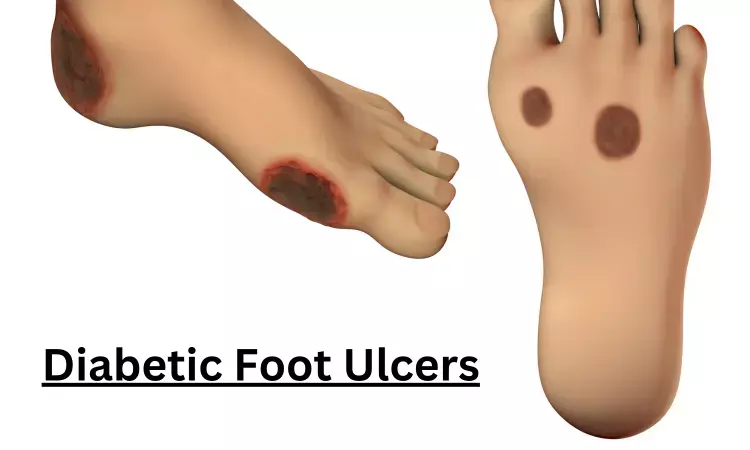- Home
- Medical news & Guidelines
- Anesthesiology
- Cardiology and CTVS
- Critical Care
- Dentistry
- Dermatology
- Diabetes and Endocrinology
- ENT
- Gastroenterology
- Medicine
- Nephrology
- Neurology
- Obstretics-Gynaecology
- Oncology
- Ophthalmology
- Orthopaedics
- Pediatrics-Neonatology
- Psychiatry
- Pulmonology
- Radiology
- Surgery
- Urology
- Laboratory Medicine
- Diet
- Nursing
- Paramedical
- Physiotherapy
- Health news
- Fact Check
- Bone Health Fact Check
- Brain Health Fact Check
- Cancer Related Fact Check
- Child Care Fact Check
- Dental and oral health fact check
- Diabetes and metabolic health fact check
- Diet and Nutrition Fact Check
- Eye and ENT Care Fact Check
- Fitness fact check
- Gut health fact check
- Heart health fact check
- Kidney health fact check
- Medical education fact check
- Men's health fact check
- Respiratory fact check
- Skin and hair care fact check
- Vaccine and Immunization fact check
- Women's health fact check
- AYUSH
- State News
- Andaman and Nicobar Islands
- Andhra Pradesh
- Arunachal Pradesh
- Assam
- Bihar
- Chandigarh
- Chattisgarh
- Dadra and Nagar Haveli
- Daman and Diu
- Delhi
- Goa
- Gujarat
- Haryana
- Himachal Pradesh
- Jammu & Kashmir
- Jharkhand
- Karnataka
- Kerala
- Ladakh
- Lakshadweep
- Madhya Pradesh
- Maharashtra
- Manipur
- Meghalaya
- Mizoram
- Nagaland
- Odisha
- Puducherry
- Punjab
- Rajasthan
- Sikkim
- Tamil Nadu
- Telangana
- Tripura
- Uttar Pradesh
- Uttrakhand
- West Bengal
- Medical Education
- Industry
Plasma Fibrinogen Levels May Help Predict Severity and Progression of Diabetic Foot Ulcers: Study Finds

Pakistan: A recent study published in Cureus highlights a significant association between plasma fibrinogen levels and the severity of diabetic foot ulcers (DFU) in patients with diabetes.
The findings indicate a strong correlation between plasma fibrinogen levels and the severity of DFUs, with levels reaching 720.77 mg/dL in Wagner Grade 5 cases. Higher fibrinogen levels were also linked to vascular impairment, ulcer depth, elevated C-reactive protein, and comorbidities such as hypertension and chronic kidney disease. These findings highlight the potential of fibrinogen as a predictive marker for DFU progression, aiding in risk assessment and guiding treatment strategies.
Diabetic foot ulcers are a severe complication of diabetes mellitus (DM), often resulting in hospitalization, amputations, and a diminished quality of life. Given the role of inflammation in DFU progression, monitoring specific biomarkers can aid in assessing severity and guiding treatment strategies. Considering this, Zahir Khan, Orthopaedic Surgery, Medical Teaching Institution (MTI) Mardan Medical Complex and Bacha Khan Medical College, Mardan, PAK, and colleagues examine the association between plasma fibrinogen levels and DFU severity while also evaluating its link with vascular health, infection risk, and other clinical biomarkers. Understanding these relationships could enhance the prediction and management of DFU outcomes, allowing for more targeted interventions and improved patient care.
For this purpose, the researchers conducted a cross-sectional study at Mardan Medical Complex from June 2024 to January 2025, enrolling 93 diabetic patients with active DFUs. DFU severity was classified using the Wagner system, while vascular health was evaluated via the Ankle-Brachial Index (ABI) and Doppler ultrasound. Plasma fibrinogen, CRP, ESR, and fasting blood glucose levels were measured from fasting samples. Statistical analyses, including Kruskal-Wallis, Mann-Whitney, ANOVA, Decision Trees, and regression models, examined associations between fibrinogen levels, DFU severity, vascular impairment, and inflammation.
Key Findings:
- The study included 93 diabetic patients with an average age of 59, comprising 49 males (52.68%) and 44 females (46.32%).
- Severe ulcers (Wagner Grade 5) were observed in 28 patients (30.11%), while 53 patients (56.99%) had critical ischemia.
- Bacterial infections were present in 71 patients (76.34%).
- The average plasma fibrinogen level was 681 ± 160 mg/dL, exceeding the normal range.
- Fibrinogen levels increased with ulcer severity, measuring 503.51 mg/dL for Wagner Grade 2, 623.45 mg/dL for Grade 3, 627.32 mg/dL for Grade 4, and 720.77 mg/dL for Grade 5.
- Higher fibrinogen levels were linked to deeper ulcers.
- Patients with non-palpable pedal pulses and severe peripheral arterial disease had significantly elevated fibrinogen levels.
- Fibrinogen levels showed a positive correlation with CRP (r = 0.50).
- Comorbid conditions included hypertension in 66 patients (70.97%) and chronic kidney disease in 20 patients (21.51%).
The study highlights a strong association between plasma fibrinogen levels and DFU severity, highlighting its potential as a valuable biomarker for predicting disease progression. The authors noted, "Monitoring fibrinogen, along with other biomarkers, could enhance risk stratification, enabling clinicians to identify patients at higher risk for complications such as non-healing wounds and amputations." They further emphasized, "This approach may facilitate more personalized treatment strategies and provide insights into the effectiveness of ongoing therapy."
Concluding their findings, they stated, "Given its diagnostic and predictive potential, future research should focus on validating fibrinogen as a standard marker in DFU management to improve patient outcomes."
Reference:
Khan Z, Zeb S, . A, et al. (March 24, 2025) The Relationship Between Plasma Fibrinogen Levels and the Severity of Diabetic Foot Ulcers in Diabetic Patients. Cureus 17(3): e81118. doi:10.7759/cureus.81118
Dr Kamal Kant Kohli-MBBS, DTCD- a chest specialist with more than 30 years of practice and a flair for writing clinical articles, Dr Kamal Kant Kohli joined Medical Dialogues as a Chief Editor of Medical News. Besides writing articles, as an editor, he proofreads and verifies all the medical content published on Medical Dialogues including those coming from journals, studies,medical conferences,guidelines etc. Email: drkohli@medicaldialogues.in. Contact no. 011-43720751


